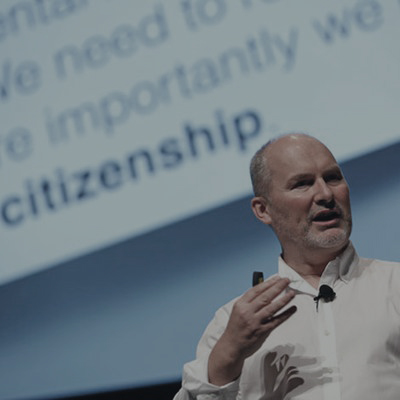The Moral Argument for Basic Income

Post by ~ Simon Duffy
Critics of basic income often characterise it as ‘free money’ - an idea that seems ludicrous and immoral - and is certainly inflationary: if we really all could print our own money then price control and economic exchange would collapse.
But basic income isn’t free money and it isn’t immoral - it is very moral.
Basic income is something much more precise and limited, and there is a very strong moral argument for establishing it as a fundamental element within the modern welfare state. But to make the moral case for basic income we need to know what basic income is. I think it is safe to say that basic income has the following 4 characteristics:
-
Liveable - Basic income is a regular and reliable payment, paid, say monthly, to meet all your living costs, which certainly includes money for: decent food, clothing, heating and other necessities. [1]
-
Unconditional - You get a basic income if you are in a job, if you are not in a job, if you are taking care of your children or your parents, if you are studying, if you are an artist, if you are volunteering, if you are carrying out civic duties and if you are doing none of those things. [2]
-
Universal or non-means-tested - You will pay tax on your earnings, or however else the tax system works, but you don’t pay tax on your basic income in addition to those regular taxes. After all it is the money you need for all the basics, so you can’t pay taxes out of this money as well. [3]
-
Individual - it is your income; it is for your essential needs, and you don’t lose it just because you live with your friends, live with a partner, get married, start a family or take care of family or friends. [4]
The moral argument for basic income is not so complex, but it is compound: in other words, it is really a matter of bringing together 4 relatively simple arguments:
1. Argument for a secure and liveable income:
We should give people a secure and liveable income because its wrong to let people go hungry, naked or cold and it is generally best to give people money to meet those needs so that they can decide how best to meet their own needs.
If you believe that it is wrong to deprive people of healthcare, or an education, then why is it right to deprive them of food, clothing or warmth?
Why is medicine a right but food is optional?
2. Argument for unconditionality:
We should give people this basic income to people regardless of whether we think that they are behaving in the best way; in particular we should give it to people who are working, looking for working, unable to work or not currently looking for work.
If you believe that it is wrong to starve prisoners, who have committed a crime, then why is it right to take money away from someone whose only crime is to be poor?
3. Argument for universality or no means-testing:
We should give this money to everyone, whatever their earnings or wealth. We expect everyone to pay taxes on their earnings or savings, as the community agrees is fair, but we should not place extra burdens on those on the lowest incomes and expect them to pay extra taxes just because they are poorer. This is what means-testing benefits is: it’s a super-tax on the poor. We should have a tax system that works the same for everyone, not one that target taxes on the poorest.
If you believe that it is wrong to put extra taxes on the rich, who can afford it then why is it right to put extra taxes on the poor who cannot? And if you believe that it is right to put extra taxes on the rich, why is it right to put extra taxes on the poor as well?
If you think that the rich should still be entitled to the services of the NHS, even if they could afford to purchase healthcare privately then why are they not also entitled to a basic income?
4. Argument for an individual income:
We should allow people to make life choices about living together, getting married, taking care of others or raising children and we should not punish people who form families or households by withdrawing money from them.
If you believe marriage is good then why would you punish people for choosing to marry? If you think children are important and deserve extra care then why would you take money away from larger families?
The structure of the argument
So, we can see that the argument for basic income is built on an essentially simple foundation: all human beings have certain fundamental needs and having these needs met is a right.
Clearly, if someone think its okay that people go hungry, naked or freeze then they will not accept this argument.
In that case a moral argument won’t work, you will have to switch to some other approach - perhaps focusing on the negative consequences for them - or perhaps give up and talking to someone else instead.
Each steps in the argument is really just a way of unpacking the elements of basic income in a way that makes their moral force clear. There are many more things that could said at each point, but I’ve tried to show that you may be able to find common ground by making a link to something that already seems natural to that person. Many of these arguments build on norms of modern society which are generally agreed - each challenge is really a bridge to try and help people see that basic income is consistent with those norms. You will see that some challenges are aimed at people with more Right-wing views and some with more Left-wing views.
The moral argument
There are many other arguments for basic income: improving the quality of work, greater sustainability, improving mental health, physical health and educational attainment, increasing productivity and innovation, advancing social justice, enabling active citizenship and community development. But I feel that we should try and start with this moral argument - you could call it the human rights argument - or the it’s just plain right argument.
I think if we do not assert this argument clearly then we will be faced with two problems that will undermine the political case for basic income:
Unconvincing - People will imagine that we are covering up for the weakness of our own argument and they will mistakenly believe that there is no basic human rights argument and that their conscious or unconscious prejudices about ‘making the poor work’ of ‘you can’t trust the poor’ are actually well founded. We have a strong moral argument, and so we should use it, not let people imagine that we’re covering up for our lack of an argument.
Compromising - If we do not make the moral argument central then there is a danger that we ourselves will be tempted to compromise too easily and get distracted by proposals that fall far short of basic income. For instance, it may be cheaper to have a family-based system than individual-based system - so may go along with such a proposal as a ‘first step’ - but if you are not careful then these compromises undermine the integrity of our position: we should at least be clear, a compromise is better, but not good enough, and we must continue to hold ourselves to account for the human rights at stake.
I am not suggesting that the moral argument approach is sufficient. We are dealing with changes to complex political, economic and social structures, and there are many practical considerations - and there are other moral considerations. However I am suggesting that we try and keep the moral argument central - make the argument early, make the argument clearly and make the argument confidently - we’re on solid ground.
People do the right thing for many different reasons, and not always because it is the right thing to do, but they almost always want to believe they did it for the right reasons.
[1] We also have a right to a home, plus many other rights. I have not included this right or others here because these are distinct and additional rights - no less important - but better considered as different kinds of human goods that have different ‘logics.’ For this reason UBI Lab Sheffield assumes basic income is not designed to meet housing costs and this will require a fundamentally different kind of social reform.
[2] In the current political systems there is a tendency to refine this to everyone who is part of the relevant community: say a country. Some try and limit it further to ‘passport holders’ of a country. This is not our approach -UBI Lab Sheffield considers everyone who lives in Sheffield to be a citizen of Sheffield.
[3] This also means that in a society, like the UK, which imposes a regressive tax on basic goods, like clothes and energy and which targets people on low incomes, it will be essential to include the money for those within the basic income when calculating what is enough.
[4] Obviously some people, like children, may need someone else to manage their money, like their parents, but this money is still for the child.
More about the author

Simon Duffy - Founder and Director of the Centre for Welfare Reform
Simon is the Founder and Director of the Centre for Welfare Reform. He speaks regularly on television and radio about the welfare state and social policy. He is best known for inventing personal budgets and for designing systems of self-directed support.